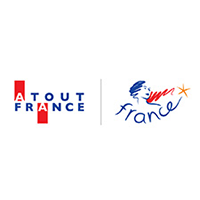Mongolia
In Mongolia, the first celebration of the year is the lunar new year, Tsagaan Sar, meaning ”white moon”. The date of the celebrations is determined according to lunar calendar. It’s a great family celebration with many ceremonies, which last three days. Tsagaan Sar traditions are several centuries old and Mongolians really respect them.
Tsagaan Sar symbolizes the first day of spring, when winter ends and the temperatures begin to get warmer. It corresponds to January or February in the Gregorian calendar, according to moon phases.
People start to prepare Tsagaan Sar many weeks before the beginning of the festivities. Every family prepares hundreds of raviolis with meat called buuz, and the balconies become giant freezers. Buuz are the traditional dish for New Year. Families also prepare in advance the elegant clothes they’ll wear. Nomads prepare their best horses, because they’ll ride them during the festivities.
The day before Tsagaan Sar is called ”Bituun”, which means “new moon”. All day long, Mongolians clean their house from top to bottom. Herders also clean the barn. Candles are lit to illuminate the Samsara and all the beings who reached the Buddha phase. Mongolians place three pieces of ice outside the door of their home, for the God Palden Lhamo’s horse to drink while the God is visiting the family. During the night, the families prepare a big dinner with much food. A great Mongolian wrestling competition is broadcasted on television. The families organize cards games because the persons who are lucky that night are supposed to be lucky all year long. People pay their debts and try to reconcile, in order to start the New Year under favourable auspices.
The morning of Tsagaan Sar, the hostess offers the first cup of tea with milk to the gods, throwing out the content in all directions. After daybreak, people begin greetings. Then they will have to go out in front of their house to perform the ritual prayers. These are published in the newspaper and are determined according to Chinese zodiac.
During the two days of Tsagaan Sar (and often during the following week), Mongolians visit their whole family ; they can visit ten families in one day. They always have to begin with the house of the oldest one, beginning with their parents’. Each visit is ritualized. When they arrive at their host’s, the latter is sitting in the Northern part of the yurt, keeping his hat on his head. They come and greet him according to the ritual called Zolgokh : guests come one after the other near the householder. The Khadag on the arms, the guest puts his forearm on those of his host, while uttering the phrase "amar baina uu? Sar shinedee saikhan shinelej baina uu", which means "do you live in peace ? Are you celebrating New Year in a good way ?". Then the host kisses him on both cheeks (or sniffs him), and the guest gives him money (new notes to mark the renewal, the amount depending on the importance of the host, but generally between 1000 and 20000 tugriks) and/or vodka. Then the guests sit around the table, where a steamed sheep, “uuts”, and a plate of traditional cookies, ”tsagaan sariin tavgiin idee”, placed in stacked rows, and whose number is always odd, were placed. The hostess serves tea with milk and traditional dishes. While the men exchange their snuffbox, people generally discuss the course of the winter. The guests drink three times, usually vodka. After meal, when the guests are ready to leave, the host offers them a gift.
Mongolians attach great importance to the first day of the new year, because they think it affects the rest of the year. Thus, Mongolians have a religious ritual called "Khiymorio sergeekh" to call good fortune. During Tsagaan Sar, the Mongolians also follow the ritual of ovoo to thank gods and nature.

